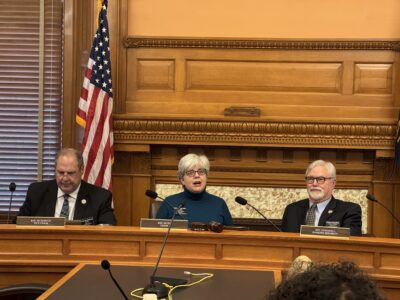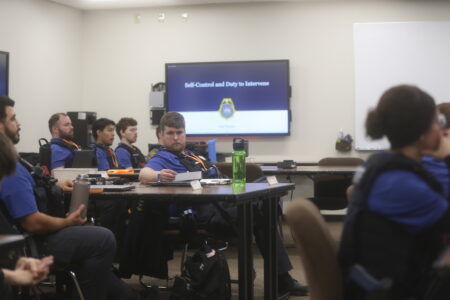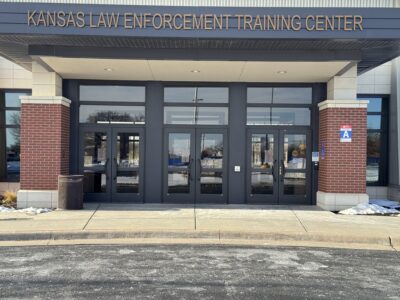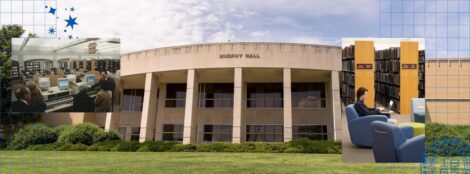
In Ames, local leaders learn Iowa State University makes de facto property tax payments to help city provide some services
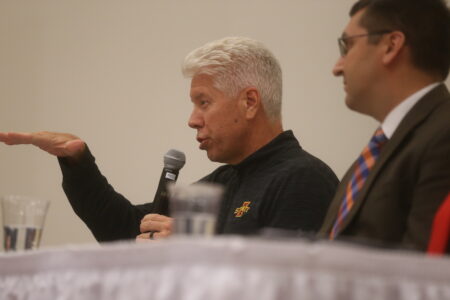
photo by: Chad Lawhorn/Journal-World
Rick Sanders, president of the Iowa State Research Park, speaks to a group of Lawrence and Douglas County leaders on the Iowa State campus in Ames on Oct. 14, 2025.
Ames, Iowa — Leaders with the City of Ames and with Iowa State University told a Lawrence delegation Tuesday evening that their community has a town/gown relationship unlike many others in the country.
Then, city officials proved it by telling the crowd what they get in the mail from the university — a check.
Actually, they get multiple checks. First, there is the one the university sends to compensate the City of Ames for providing fire protection to the ISU campus. The city routinely receives a payment from the university equaling 25% of the fire department’s annual operating budget.
Then, there are multiple checks from the ISU Research Park, which has $100 million worth of office and research buildings on about 550 acres in Ames. Even though the buildings are filled with successful private companies, the buildings are exempt from property taxes because they are on university-owned land.
But the research park sends de facto property tax checks nonetheless, and they add up to real money.
“We are the largest property taxpayer in Story County,” Rick Sanders, president of the Iowa State Research Park, told the Douglas County delegation, which is in the Ames/Des Moines area this week for a multi-day tour organized by the Lawrence chamber of commerce.
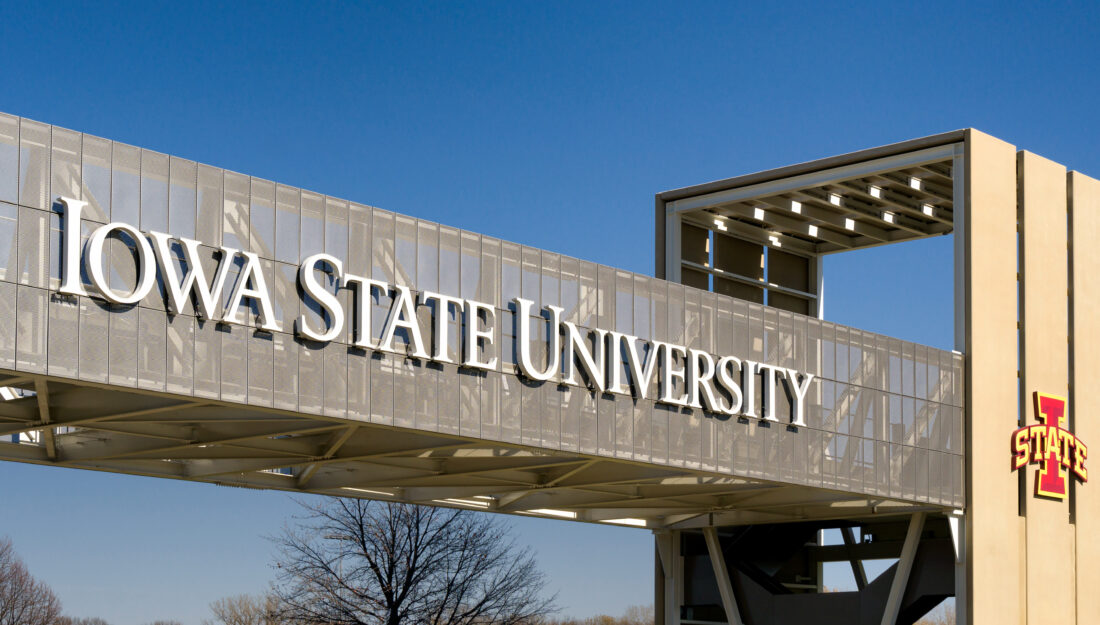
photo by: AdobeStock
A walkway and entrance on the campus of Iowa State University is shown in this AdobeStock photo.
The fact that ISU is making de facto property tax payments and contributing a significant amount to the operation of the city’s fire department caused a lot of ears to perk up in the Douglas County delegation of more than 50 business, education and nonprofit leaders.
Such payments generally aren’t happening between the City of Lawrence and the University of Kansas, which is generally exempt from property taxes as a state entity. But that doesn’t mean the idea hasn’t been on the minds of community leaders.
Douglas County Commissioner Karen Willey, who is part of the delegation, also is a member of the board that oversees the operation of KU Innovation Park, which is KU’s smaller but similar version of the ISU Research Park.
She told me the board is aware of the question about whether Innovation Park should make some type of payment that goes to the tax coffers of local governments.
“We are having those conversations,” Willey said.
When the park was started nearly 20 years ago via a partnership between the city, the county, the chamber, the university and the State of Kansas, there wasn’t much discussion of creating a mechanism for the park to make de facto property tax payments to local governments.
I covered the early days of that project, which you may recall was originally called the Lawrence Bioscience & Technology Center. Nearly all of the focus at that point was for the facility to serve as an “incubator” for promising technology-based start-up companies. My recollection is the thinking at the time centered on the belief that start-up companies already were cash-starved, capital-poor entities, so giving them a break on property taxes was important. Plus, the center itself was cash poor and seeking money from the various governmental entities to get the incubator project off the ground.
In her interview with me, Willey wasn’t critical at all of those decisions made in the park’s beginnings. However, she also said now likely is a good time to reexamine the issue.
“I think it is entirely appropriate how the park came to be,” she said. “But as we mature as an organization, how do we sell this is the return on investment to the public?”
As the park has matured, it also has changed. In addition to housing startup companies, it also is happy to have as tenants large, well-established companies that want to be next to KU researchers and students. For years, Garmin, for example, had a research office in the park.
The idea of a university-owned research park trying to attract both startups and well-established companies has been shown to be a winner in Ames. Focusing on both categories of companies has been key to growing the park from a 40-acre cornfield in 1987 to one that now has about two dozen office buildings and 2,400 jobs on site.
As Iowa State leaders saw the potential for the park, Sanders — who prior to leadership of the park was the county’s elected administrator — said they recognized the need to create a tax agreement to head off future problems.
“We had an idea that were were going to recognize,” Sanders said of the beginning conversations, “that the university cannot and should not compete with the private sector. That’s not fair to anybody or beneficial to anybody.
“But the university has the ability to offer some benefits that nobody else can offer. So, how do you marry those two things up? A really wise decision when the research park was initially set up was they would pay property taxes in those buildings where we have regular commercial entities occupying space.”
In other words, a pure university research building isn’t going to pay property taxes. But a university-owned building across the street from the research lab, filled with private companies that want to be close to that research, does pay a de facto property tax bill.
Sanders said the arrangement means the research park and city leaders often have to come together to make a determination on whether a building is university-oriented or commercial-oriented, and the discussions aren’t always easy.
“But we figure out how to get things done together,” Sanders said. “Would the research park rather not pay a couple of million dollars a year in property taxes? You are dang straight. We have a lot we could do with a couple of million dollars a year. But it is right for the community, it was the right decision when the research park was founded, and it establishes this partnership that we constantly kind of lean in on.”
Lawrence City Commissioner Bart Littlejohn, who also is in Iowa as part of the delegation, said he sees that type of partnership developing with KU. While the university doesn’t send local governments de facto property tax checks, the recently approved Gateway Project to redevelop the area around the football stadium showed many signs of a growing partnership, Littlejohn said.
The City Commission approved more than $90 million worth of financial incentives that largely will funnel state and local sales taxes to the project to pay for its infrastructure costs. But Littlejohn noted the project has other tax provisions that will directly benefit the city as it works to improve aging infrastructure elsewhere in the city.
For example, the planned hotel, retail and possibly the student housing that is planned for the development all will pay property taxes because they will be developed and operated by private companies on state-owned land. The agreement calls for the bulk of those new property taxes to be captured by the city and spent on infrastructure projects that are not directly tied to the stadium site. Instead, the monies — estimated at about $14 million — will be used to replace aging infrastructure along Ninth Street and the surrounding neighborhoods.
A smaller detail of the agreement also calls for the university to pay for a new bus service to run between downtown Lawrence and the conference center that is part of the Gateway development.
Littlejohn said those types of details are evidence that the relationship between the City of Lawrence and KU has grown greatly during the past several years. While he stopped short of saying whether KU should be asked to make payments for certain city services, he believes the city and the university are in a great position to talk about how to better the community together.
“I think the environment and the receptivity is a lot better than it has been in years,” Littlejohn said. “I think it is to the credit of a lot of the work the staff has done and we have done as a commission to kind of open those avenues.”
Willey also said she would want to look at the examples from Ames to determine whether “apples to apples” comparisons truly could be made between the two communities and universities.
Given that, she said it is too early to know whether such a payment system would be appropriate for Lawrence and KU, but said her impression is that “this is a good time to be talking about it.”
University officials, of course, will want to weigh in on the topic too. A handful of university officials have been on hand for parts of the tours and discussions in Iowa, but none were around to immediately share thoughts on the topics Wednesday.
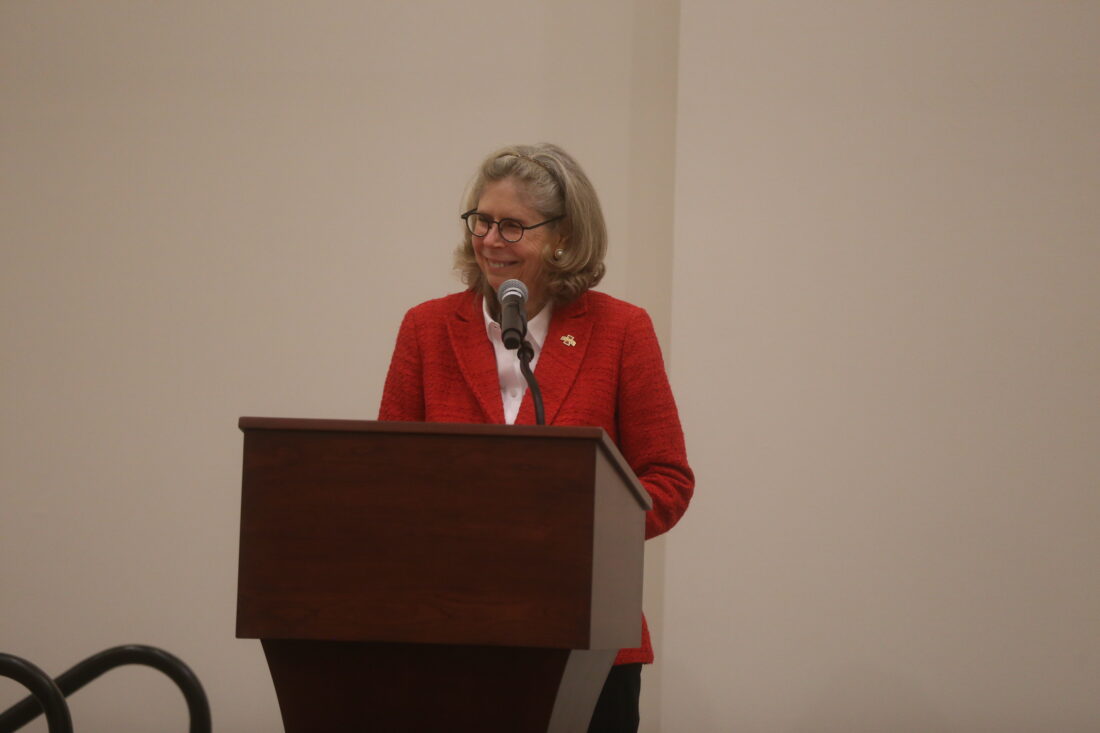
Iowa State University President Wendy Wintersteen spoke to a Lawrence and Douglas County delegation on the ISU campus in Ames on Oct. 14, 2025.




